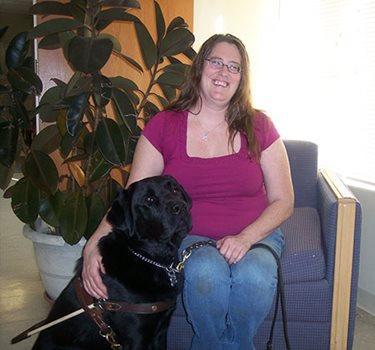Image

In its time, the house on Topeka Street in Wichita, Kansas, was an asset for the neighborhood. Built in 1920, the front-gabled Craftsman bungalow duplex had dual-gabled porches that were peaked at the ridge in Asian fashion. Then, it fell into decline and disuse, turning into an eyesore. Vacant and boarded-up, the taxes went unpaid for five years.
In January 2015, Mennonite Housing began acquiring the house using Wichita's Boarded-Up Homes Program, which is designed to reverse the blighted housing conditions in the city's Local Investment Areas. After 18 months of work, Mennonite acquired the property through its Neighborhood Homes Program and immediately began the demolition/reconstruction process.
Well before the acquisition of the Topeka Street house, Mennonite Housing began working with resident Sandra Wilkinson. She had heard about the homeownership program through a friend and was interested in buying a new house. For Wilkinson, it had to be a new home. Buying an existing home that required remodeling or repair would be difficult for her. She is single and legally blind. Her constant companion, Rex, is her guide dog. They will live together in her new home.
Wilkinson is originally from Pennsylvania, where she lived with her mom, two younger brothers and two older sisters. Then, she served as a caregiver in Ohio for five and a half years before moving to Wichita to work for a company called Envision. She has been employed there as a machine operator since June 2014. Envision is a unique company: Almost half of its 400 employees are blind or have low vision, making it the nation's second-largest employer of such individuals. It strives to improve quality of life for individuals with this disability, supporting them through employment, outreach, rehabilitation, education and research.
In addition to helping Sandra get approved for permanent financing, Mennonite Housing leveraged several resources to assist her with the down payment and closing costs: Wichita's Homeownership 80 Program for first-time buyers and a grant program offered by the Federal Home Loan Bank of Topeka. One of the requirements for these programs is completion of a homeownership training class, which Wilkinson Mennonite Housing offered. In addition, because her new home is in a targeted census tract, it is eligible for grant funds from Mennonite Housing. It is typical for Mennonite Housing to leverage as many resources as possible for its homebuyers.
Wilkinson's new home is energy-efficient. It has two bedrooms and a bath on the main level, with a living room, dining room, kitchen, a programmable thermostat with oversized numbers, and washer and dryer. There is an attached two-car garage, fenced backyard and an unfinished basement. Handrails are provided at the front and back doors.
The new home in the neighborhood will have a positive impact on housing values and increase stability. The impact on Sandra is evident: "It is a blessing to have a new home," she says. "And it's great for Rex, too, because the backyard is fenced."

